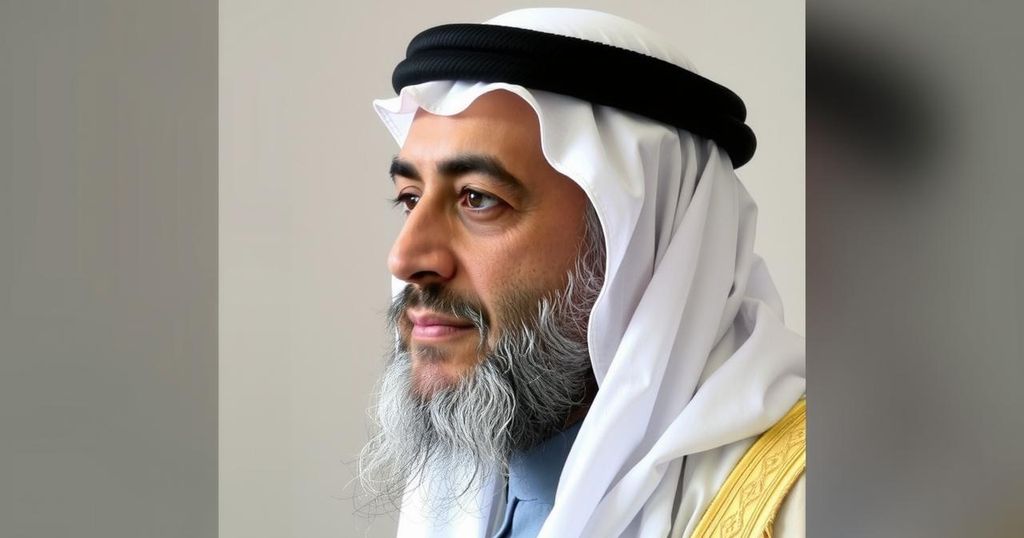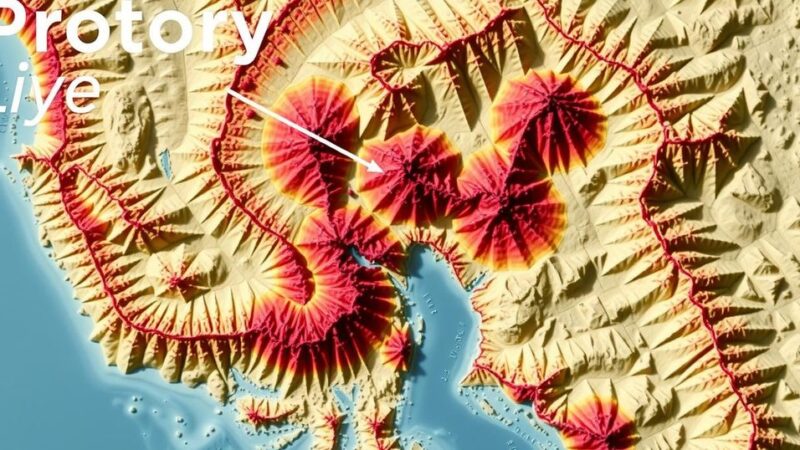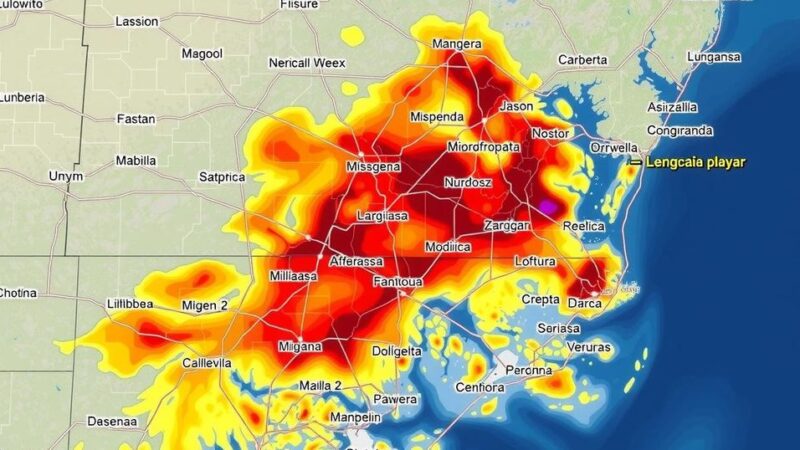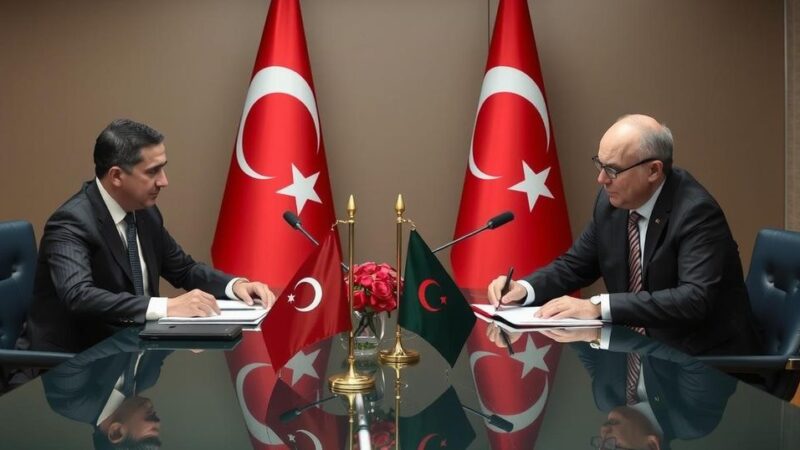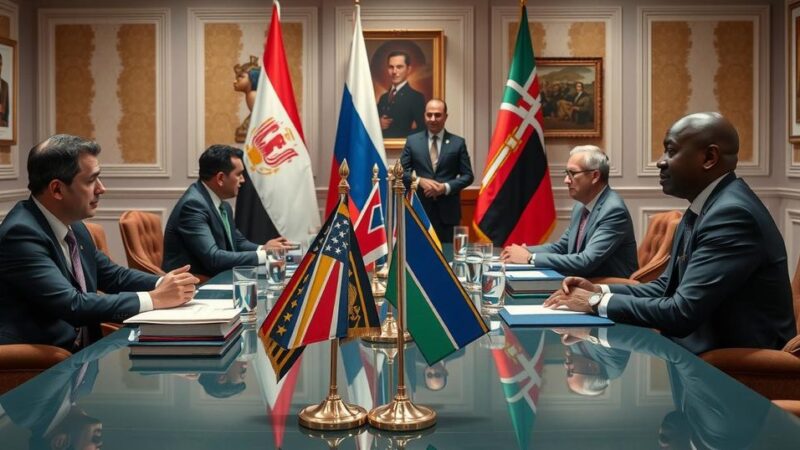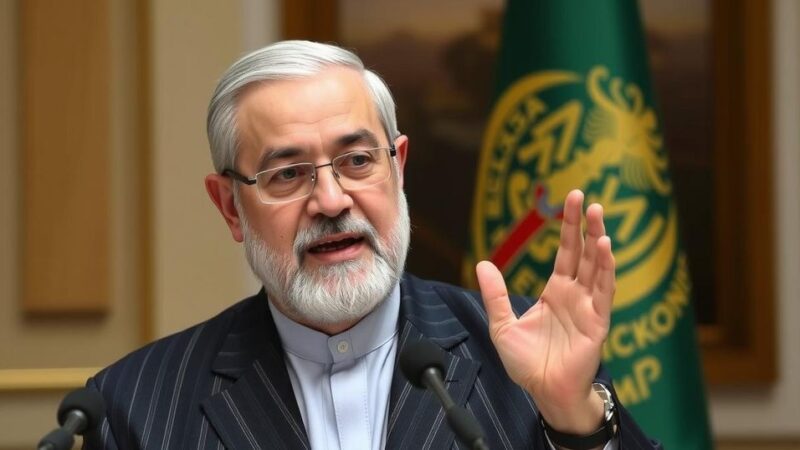Abdul Rahman al-Qaradawi, son of the late Muslim Brotherhood leader, has been extradited from Lebanon to the UAE and faces charges related to security threats. Arrested after entering Lebanon from Syria, he is accused of inciting terrorism. Human Rights Watch has raised concerns about his potential treatment in the UAE. His extradition highlights ongoing tensions between Gulf states and the Muslim Brotherhood.
The United Arab Emirates (UAE) has detained Abdul Rahman al-Qaradawi, the son of the late spiritual leader of the Muslim Brotherhood, following his extradition from Lebanon. Al-Qaradawi, arrested in Lebanon upon entering from Syria on December 28, faces allegations of engaging in activities that threaten public security, as reported by the state-run WAM news agency. Lebanon agreed to extradite him at the request of Egypt and the UAE, who accused him of inciting terrorism and oppositional actions against the state based on a recent video he had posted. In this video, he allegedly called for support of opposition forces in the region and highlighted perceived threats from certain regimes, further aggravating tensions with the UAE.
Lebanese authorities confirmed that al-Qaradawi would be sent to the UAE while emphasizing their commitment to not harbor any individuals targeting national security. Human Rights Watch has expressed serious concerns regarding al-Qaradawi’s treatment upon extradition, suggesting he may face unfair trial conditions or torture in the UAE detention facilities. Abdul Rahman al-Qaradawi’s background is marked by his political activism against the government of former Egyptian leader Hosni Mubarak and his familial connection to Yusuf al-Qaradawi, a well-known Sunni scholar associated with the Muslim Brotherhood who died in exile in 2022 after being imprisoned multiple times in Egypt.
Abdul Rahman al-Qaradawi is connected to the broader historical context of the Muslim Brotherhood, a significant political and religious movement that has faced severe repression in Egypt and several Gulf states. The organization is deemed a terrorist group by both the UAE and Egypt. Careful scrutiny is given to members of this group, particularly those with familial ties to prominent leaders, like al-Qaradawi’s father, Yusuf al-Qaradawi, who was a significant figure before his death. The tension between these nations and individuals associated with the Brotherhood underscores the ongoing geopolitical dynamics in the Middle East.
The extradition of Abdul Rahman al-Qaradawi from Lebanon to the UAE underscores the UAE’s decisive posture against perceived threats to its national security, particularly from the Muslim Brotherhood. While al-Qaradawi’s legal circumstances draw international concern regarding his potential treatment and the fairness of his trial, the unfolding events reflect broader political tensions in the region and the lasting impacts of the Arab Spring. This case exemplifies the challenges faced by political activists and their families involved with contentious organizations in the Middle East.
Original Source: www.newarab.com

